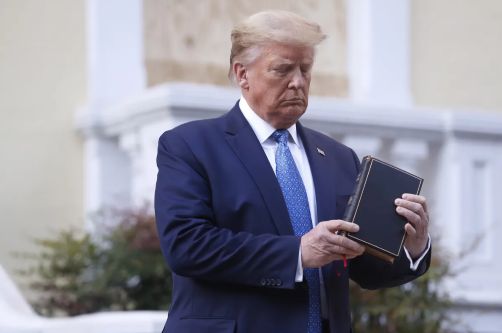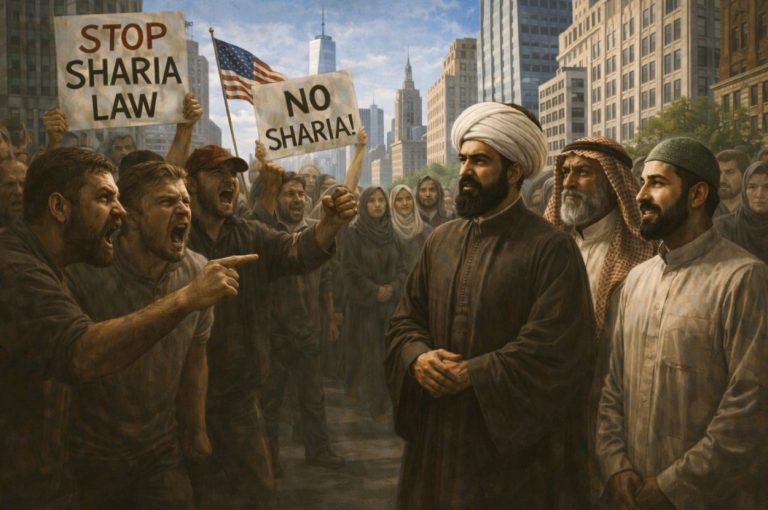

Militant Christian conservatism has produced a backlash.

By Francis Wilkinson
Opinion Columnist
Bloomberg
Donald Trump, a 77-year-old Bible salesman from Palm Beach, Florida, has emerged as the nation’s most prominent Christian leader. Trump is running for president as a divinely chosen champion of White Christians, promising to sanctify their grievances, destroy their perceived enemies, bolster their social status, and grant them the power to impose an anti-feminist, anti-LGBTQ, White-centric Christian nationalism from coast to coast. That Trump doesn’t attend church and has obviously never read the book that he hawks for $59.99, seems of interest exclusively to his political opponents.
What might catch the attention of some evangelical conservatives, however, is that Trump’s ostentatious embrace of White Christian militantism coincides with a precipitous decline in religious affiliation in the US. According to the Public Religion Research Institute, one-quarter of Americans in 2023 said they were religiously unaffiliated. “Unaffiliated” is the only religious category experiencing growth. In a single decade, from 2013 to 2023, the percentage of Americans saying that religion is the most important thing, or among the most important things, in their life plummeted to 53% from 72%.
“The drop in the percentage of Americans saying religion is important in their lives is stunning, especially in just a short 10-year period,” said Michael Emerson, a sociologist at Rice University and author of several books on American Christianity. “The now-intimate tie between religion and a host of political and social positions, for many people, either drives them away from religion altogether or leads them to distance themselves.”
In effect, militant Christian conservatism, now tightly wrapped in the gaudy corruption of Trumpism, has produced a backlash. “An increasing number of Americans have an allergic reaction to the mixture of religion and conservative politics, including the MAGA movement,” said David Campbell, a political scientist at Notre Dame University and coauthor of Secular Surge: A New Fault Line in American Politics. “To these people, religion is equated with conservative politicians and policies. If that is not their politics, they want nothing to do with religion. This was true before the emergence of Trump and the MAGA movement but has accelerated since so many evangelical leaders have embraced Trump.”
READ ENTIRE ARTICLE AT BLOOMBERG


